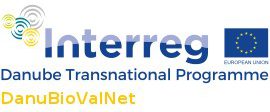The DanuBioValNet project, launched in 2017 through a cross-regional partnership involving 16 partners from 10 Danube regions, enhance transformation from fossil-based economy towards an economy using renewable resources by creating Danube bio-based value-added networks.
The aim of this project is to develop new methods, strategies and tools to connect Danube actors (SMEs, farmers, universities, research institutes, etc.) in a bio-based industry. The project is focused on three bio-based value chains with high potential, such as Phytopharma, Eco-construction and Bio-based packing (bioplastic). Moreover, the hemp-industry has been included as well because hemp can be seen as a raw material for all three value chains.
The partners intend to develop a long-term, industry driven roadmap for such collaboration, a Joint Bio-Based Industry Cluster Policy Strategy, and create new bio-based value chains in the Danube Region and eco-innovations for supporting regional development. Clusters, as groups of industries that are closely linked by common products, markets, technologies and interests, are chosen to organize and carry forward the needed industry cooperation for the creation of new value chains.
Successfully established new bio-based value chains in the pilot actions can motivate other clusters and SMEs to test this newly developed approach in the future.

-
Grant Agreement ID289699
-
Call TopicInnovative and socially responsible Danube region
-
Project Website
-
DurationFrom: 2017-01-01To: 2019-06-30
-
Overall Budget2 320 844,8 €
-
CoordinatorBIOPRO Baden-Württemberg GmbH
 PROJECT CONTENTS
PROJECT CONTENTS

